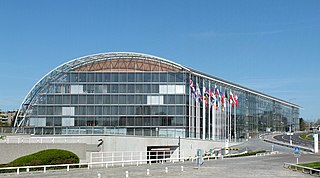| Dutch EU-Ukraine Association Agreement referendum | |||||||||||||||||||||||||
|---|---|---|---|---|---|---|---|---|---|---|---|---|---|---|---|---|---|---|---|---|---|---|---|---|---|
Dutch: Bent u voor of tegen de wet tot goedkeuring van de Associatieovereenkomst tussen de Europese Unie en Oekraïne? Contents | |||||||||||||||||||||||||
| Location | Netherlands | ||||||||||||||||||||||||
| Date | 6 April 2016 | ||||||||||||||||||||||||
| |||||||||||||||||||||||||
| |||||||||||||||||||||||||
| Suspensory, non-binding referendum which has effect when a simple majority votes "Against" and turnout is at least 30%. | |||||||||||||||||||||||||
 |
|---|
| This article is part of a series on the politics and government of the Netherlands |
Local government |
|
The Dutch Ukraine–European Union Association Agreement referendum was a referendum on the approval of the Association Agreement between the European Union and Ukraine, held in the Netherlands on 6 April 2016. The referendum question was: "Are you for or against the Approval Act of the Association Agreement between the European Union and Ukraine?" [1]

In the Netherlands, from the entry into force of the Advisory Referendum Act on 1 July 2015, until its repeal on 18 February 2018, most types of primary laws could be subjected to a suspensory, non-binding referendum if requested shortly after royal assent and subsequent proclamation. If a law was rejected by more than half of the votes cast, with a mandatory turnout of at least 30%, its entry into force was be suspended indefinitely and a follow-up law had to be enacted that either repealed the law or provided for its entry into force.

The Ukraine–European Union Association Agreement is a European Union Association Agreement between the European Union (EU), Euratom, Ukraine and the EU's 28 member states. It establishes a political and economic association between the parties. The agreement entered into force on September 1, 2017, and previously parts had been provisionally applied. The parties committed to co-operate and converge economic policy, legislation, and regulation across a broad range of areas, including equal rights for workers, steps towards visa-free movement of people, the exchange of information and staff in the area of justice, the modernisation of Ukraine's energy infrastructure, and access to the European Investment Bank. The parties committed to regular summit meetings, and meetings among ministers, other officials, and experts. The agreement furthermore establishes a Deep and Comprehensive Free Trade Area between the parties.

The Netherlands is a country located mainly in Northwestern Europe. The European portion of the Netherlands consists of twelve separate provinces that border Germany to the east, Belgium to the south, and the North Sea to the northwest, with maritime borders in the North Sea with Belgium, Germany and the United Kingdom. Together with three island territories in the Caribbean Sea—Bonaire, Sint Eustatius and Saba— it forms a constituent country of the Kingdom of the Netherlands. The official language is Dutch, but a secondary official language in the province of Friesland is West Frisian.
With a turnout of 32.28%, the threshold for a valid referendum was met. 61% of the votes cast were against the Approval Act, but accounted for only 19.5% of eligible voters. As the Act was rejected, the States General has to enact a follow-up law to either repeal the Act or put it into effect after all. The referendum is the first since the enactment of the Advisory Referendum Act (Wet raadgevend referendum) on 1 July 2015, [2] with the Dutch tapping law referendum in 2018 to be the second. [3]

The States General of the Netherlands is the bicameral legislature of the Netherlands consisting of the Senate and the House of Representatives. Both chambers meet at the Binnenhof in The Hague.
The decision to hold a referendum was made after more than 427,000 valid requests were received within six weeks, more than the required number of 300,000 requests. The referendum was suspensory and non-binding, and following the rejection the Government had to propose "zo spoedig mogelijk" (English: as soon as possible/at the earliest convenience) a new act to either gain parliamentary approval for either retraction of the approval act or for its entry into force. The government secured an additional agreement between the 28 Member States of the European Union addressing what were according to the government the concerns of the no-vote in December 2016. The additional agreement did not change the association agreement and neither Ukraine nor the European Union or Euratom were parties to the additional agreement. [4] Following the approval of the additional agreement, a new law was passed approving the Assocication Agreement in May 2017, [5] [6] enabling the Netherlands to deposit its instrument of ratification on 15 June 2017. [7] The association agreement entered into force on 1 September 2017.
















